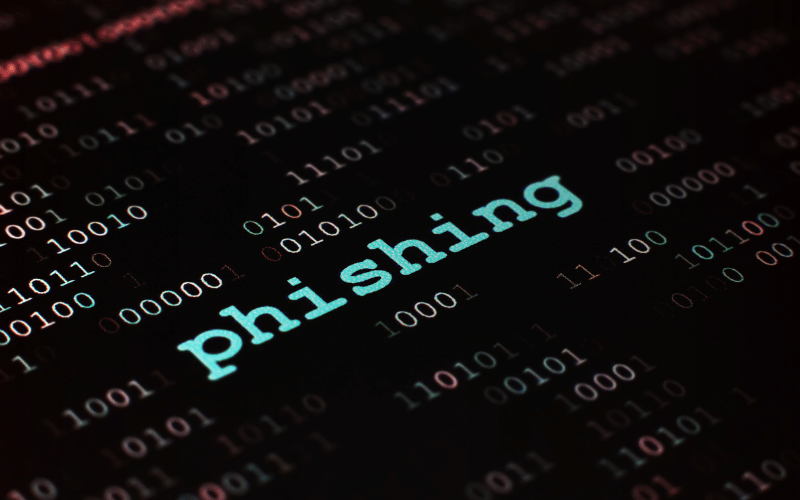As organizations strive to protect their sensitive data and systems, the adoption of phishing-resistant Multi-Factor Authentication (MFA) has emerged as a critical defense mechanism. This blog post explores what phishing-resistant MFA is, why its adoption is on the rise, and how Public Key Infrastructure (PKI) offers the best phishing resistance in the realm of MFA.
What is Phishing-Resistant MFA?
Phishing-resistant MFA is a security mechanism designed to thwart phishing attacks, which are attempts by malicious actors to deceive users into providing sensitive information, such as passwords, by masquerading as a trustworthy entity. Traditional MFA methods, like SMS-based authentication or simple OTPs (One-Time Passwords), are increasingly vulnerable to sophisticated phishing techniques. Phishing-resistant MFA aims to mitigate these risks by employing more robust authentication methods that are less susceptible to social engineering and interception.
Key Characteristics of Phishing-Resistant MFA
- Strong Cryptographic Methods: Utilizes cryptographic techniques that ensure the authentication process is secure and cannot be easily intercepted or replicated.
- Hardware-Based Tokens: Incorporates hardware tokens, such as FIDO (Fast Identity Online) security keys, which provide an additional layer of security.
- Biometric Verification: Uses biometric data like fingerprints or facial recognition, which are unique to each individual and difficult to forge.
- Mutual Authentication: Ensures that both the user and the service are authenticated, preventing man-in-the-middle attacks.
Why is the Adoption of Phishing-Resistant MFA on the Rise?
The increasing adoption of phishing-resistant MFA is driven by several factors:
1. Rising Phishing Attacks
Phishing attacks are on the rise, with cybercriminals employing more sophisticated techniques to deceive users. According to the Anti-Phishing Working Group (APWG), phishing attacks have reached record highs, with millions of attacks being reported annually. The need for more effective security measures has become paramount.
2. Regulatory Compliance
Regulations and standards like the General Data Protection Regulation (GDPR), Payment Card Industry Data Security Standard (PCI DSS), and the National Institute of Standards and Technology (NIST) guidelines are pushing organizations towards stronger authentication methods. NIST, for instance, emphasizes the use of phishing-resistant MFA in its digital identity guidelines.
3. Increased Awareness of Security Risks
Organizations and individuals are becoming more aware of the potential risks associated with phishing and other cyber threats. This awareness is driving the demand for more secure authentication solutions that can protect sensitive information and maintain user trust.
4. Technological Advancements
Advancements in technology, particularly in the fields of biometrics and cryptography, have made it easier to implement and deploy phishing-resistant MFA solutions. The availability of affordable and user-friendly hardware tokens has also contributed to the increased adoption.
5. Remote Work and Digital Transformation
The shift towards remote work and digital transformation has exposed organizations to new security challenges. Ensuring secure access to systems and data in a remote environment necessitates the use of robust authentication methods, further driving the adoption of phishing-resistant MFA.
How PKI Offers the Best Phishing Resistance in MFA
Public Key Infrastructure (PKI) is widely recognized as one of the most effective solutions for implementing phishing-resistant MFA. PKI uses a combination of asymmetric encryption, digital certificates, and cryptographic keys to provide secure authentication and data encryption.
Components of PKI
- Asymmetric Encryption: PKI uses a pair of cryptographic keys – a public key and a private key. The public key is shared openly, while the private key is kept secure by the owner.
- Digital Certificates: These certificates, issued by a trusted Certificate Authority (CA), link the public key to the identity of the key owner. They are used to verify the authenticity of the public key.
- Certificate Authorities (CAs): Trusted entities that issue and manage digital certificates. They play a crucial role in the trust model of PKI.
Advantages of PKI in Phishing-Resistant MFA
- Strong Cryptographic Security: PKI’s use of asymmetric encryption ensures that even if a public key is intercepted, it cannot be used to decrypt the data or impersonate the user without the corresponding private key.
- Mutual Authentication: PKI enables mutual authentication, where both the user and the service validate each other’s identities. This significantly reduces the risk of man-in-the-middle attacks, where an attacker intercepts and alters communication between two parties.
- Resistance to Phishing: With PKI, authentication is based on digital certificates and cryptographic keys rather than passwords or OTPs, making it immune to phishing attacks that rely on stealing user credentials.
- Non-Repudiation: PKI provides non-repudiation, ensuring that a user cannot deny their actions. This is particularly important in scenarios where legal or regulatory compliance is required.
- Scalability: PKI is highly scalable and can be deployed across large organizations with diverse authentication needs. It can support a wide range of applications, from securing email communication to enabling secure remote access.
Implementing PKI-Based MFA
Implementing PKI-based MFA involves several steps:
- Establishing a PKI Infrastructure: This includes setting up Certificate Authorities (CAs), Registration Authorities (RAs), and a secure repository for storing and managing certificates.
- Issuing Digital Certificates: Users and devices are issued digital certificates that bind their identity to their public key.
- Deploying Authentication Solutions: Integrating PKI-based authentication solutions with existing systems and applications. This may involve using hardware tokens, smart cards, or software-based certificates.
- Training and Awareness: Ensuring that users are aware of the importance of PKI and how to use their certificates and tokens securely.
Real-World Applications of PKI-Based MFA
- Secure Email Communication: PKI is used to encrypt and sign emails, ensuring that only the intended recipient can read the message and that the sender’s identity is verified.
- VPN Access: Organizations use PKI to secure VPN access, ensuring that only authorized users can connect to the corporate network.
- Digital Signatures: PKI enables the use of digital signatures for signing documents and transactions, providing authenticity and integrity.
- IoT Security: PKI is increasingly being used to secure Internet of Things (IoT) devices, ensuring that only authorized devices can communicate within the network.
As cyber threats continue to evolve, the importance of robust authentication mechanisms cannot be overstated. Phishing-resistant MFA, backed by the strong security guarantees of PKI, offers an effective solution to counter the growing threat of phishing attacks. The adoption of such advanced authentication methods is not only a necessity for regulatory compliance but also a critical step towards ensuring the security and trustworthiness of digital interactions. By leveraging the strengths of PKI, organizations can enhance their security posture and protect their valuable assets from malicious actors.
Try Portnox Cloud for Free Today
Gain access to all of Portnox's powerful zero trust access control free capabilities for 30 days!




